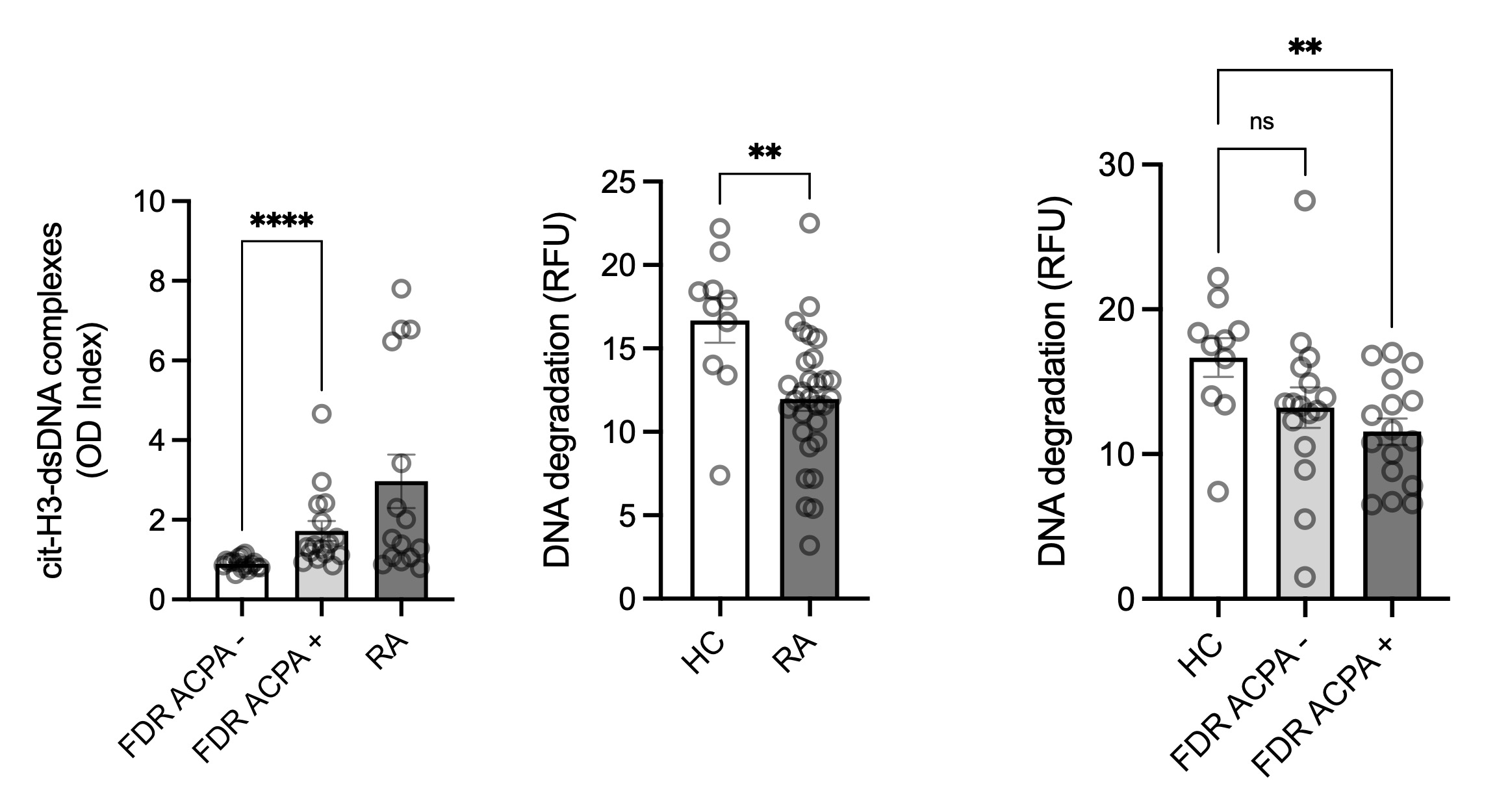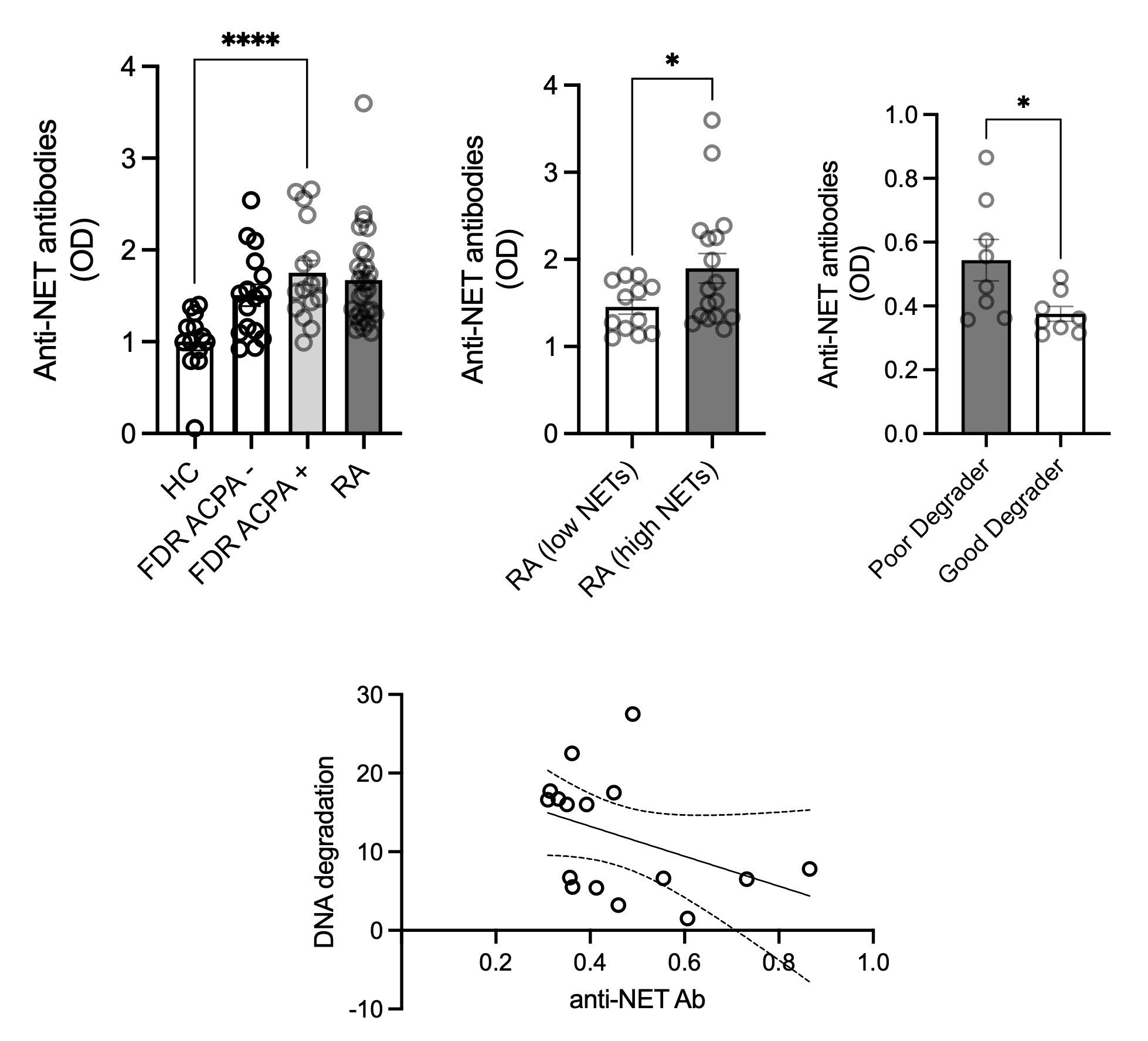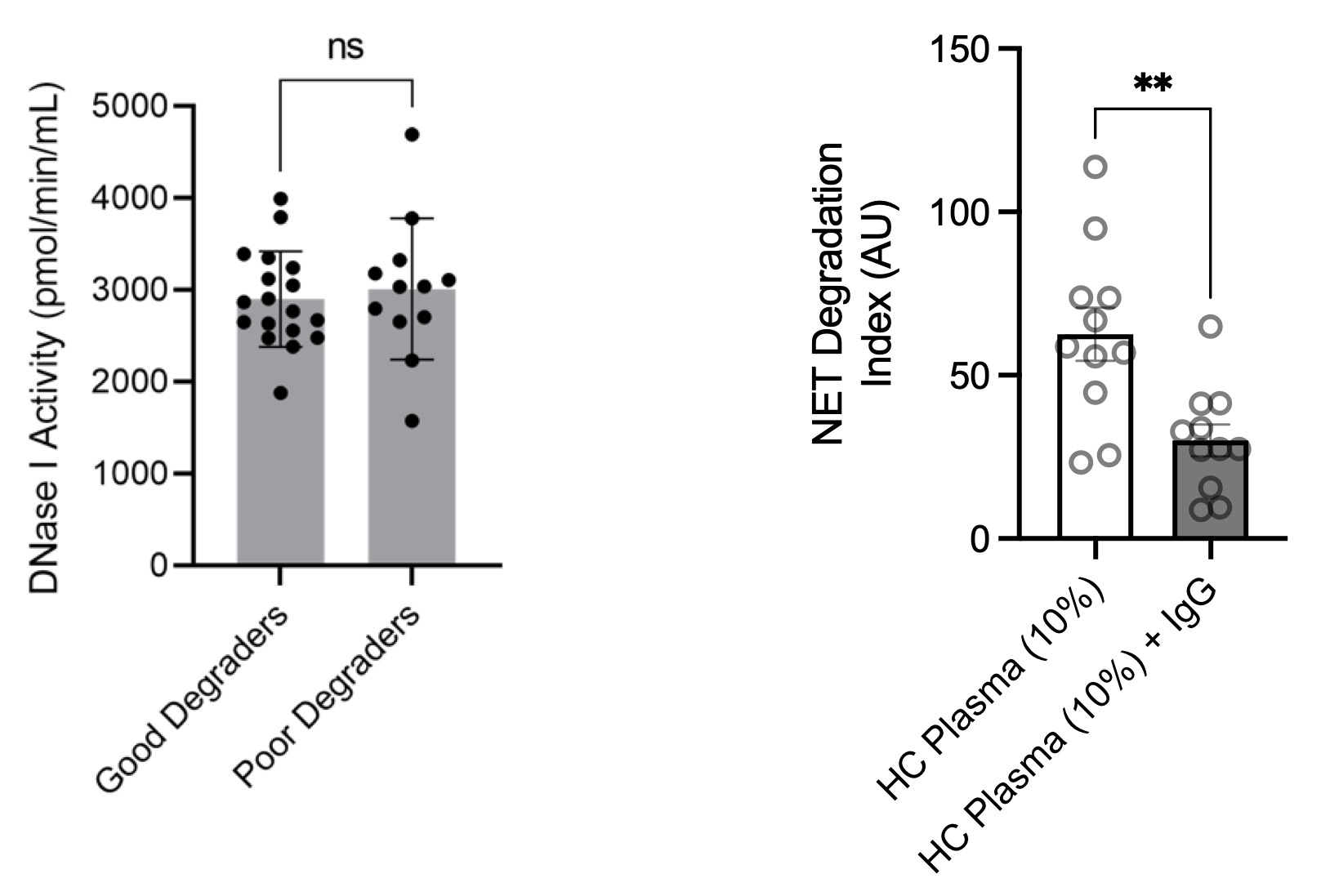Session Information
Session Type: Poster Session A
Session Time: 10:30AM-12:30PM
Background/Purpose: Rheumatoid Arthritis (RA) begins after a prolonged preclinical phase which is marked by the development of RA antibodies, typically against citrullinated proteins (ACPA). The production of neutrophil extracellular traps (NETs), a form of cell death undertaken by neutrophils, leads to the extrusion of self-DNA decorated in citrullinated proteins, predominantly histones and proteases. Increased NET abundance has been observed in the blood and at mucosal surfaces in established and preclinical RA, but it is not known if dysregulated NET production or impaired NET degradation, or both, is involved. This study aimed to evaluate NET degradation in a well-established longitudinal cohort of first-degree relatives (FDR) of RA patients, individuals at-risk to develop future RA.
Methods: Total NET complexes (citrullinated Histone-3-dsDNA complexes) were measured in 10% plasma using a custom in-house ELISA. A plate-based NET degradation assay was performed based on past publications. In brief, neutrophils (1.0×106 cells) were cultured at 37oC in a 96-well plate in the presence of A23187 (1uM) to form NETs, which are detected by fluorescence (SYTOX green, 10uM). Two reads are taken, one before and one after 10% plasma is added (overnight at 37oC), and these reads are used to calculate the % of NETs degraded in quadruplicates. Poor/good NET degraders were determined using group sample median. Anti-NET antibodies were determined by ELISA, using plates coated with micrococcal nuclease isolated NET complexes (10% NETs). DNase-1 activity was assessed in plasma via fluorescence (Abcam) according to the manufacturer’s instructions. Protein G beads were used to isolate IgG from 50 μL of plasma and resuspended in neutral buffer.
Results: Using samples from RA (n=30), ACPA- FDR (n=16), ACPA+ FDR (n=16) we observed higher NET complexes (citH3-dsDNA) in the plasma of ACPA+ FDR (p < 0.0001) and RA patients (p < 0.0001) compared to ACPA- FDR. NET degradation (using healthy control plasma as positive control, n=10), was impaired in ACPA+ FDR (p=0.005) and RA (p=0.001), but not in ACPA- FDR. There was no association between NET complexes and NET degradation capacity. Anti-NET antibodies were detected in ACPA+ FDR (p < 0.0001) and RA (p < 0.0001, Fig 1) and anti-NET antibody levels were higher in individuals who were labelled as poor degraders compared to good degraders (p=0.04). There was also a negative association between anti-NET antibodies and NET degradation (R=-0.43, p=0.09, Fig2). DNase-1 activity was no different between any of the sample groups, and not reduced in samples considered poor degraders. Total IgG was isolated from poor NET degraders with high anti-NET IgG (n=3). Pre-incubation of IgG (10% total IgG) reduced the degradation of NETs by HC plasma (p=0.003, Fig3).
Conclusion: We show for the first time that NET degradation is impaired in RA and preclinical RA and that this observation is not related to reduced DNase-1 activity. Our data suggests that anti-NET antibodies, likely ACPA, reduce NET degradation by binding to protein-DNA complexes, potentially shielding these complexes from local DNases.
To cite this abstract in AMA style:
Maisha J, Sememenko A, Kim J, Navarrete M, MENG X, El-Gabalawy H, O'Neil L. Impaired Neutrophil Extracellular Trap (NET) Degradation in Rheumatoid Arthritis (RA) and Pre-clinical RA Is Mediated by Anti-NET Antibodies [abstract]. Arthritis Rheumatol. 2024; 76 (suppl 9). https://acrabstracts.org/abstract/impaired-neutrophil-extracellular-trap-net-degradation-in-rheumatoid-arthritis-ra-and-pre-clinical-ra-is-mediated-by-anti-net-antibodies/. Accessed .« Back to ACR Convergence 2024
ACR Meeting Abstracts - https://acrabstracts.org/abstract/impaired-neutrophil-extracellular-trap-net-degradation-in-rheumatoid-arthritis-ra-and-pre-clinical-ra-is-mediated-by-anti-net-antibodies/



